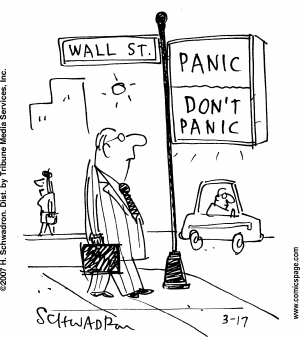By Ann DavisData emerging on players in the commodities markets show that speculators are a larger piece of the oil market than previously known, a development enlivening an already tense election-year debate about traders' influence.
Last month, the main U.S. regulator of commodities trading, the Commodity Futures Trading Commission, reclassified a large unidentified oil trader as a "noncommercial" speculator.
The move changed many analysts' perceptions of the oil market from a more diversified marketplace to one with a heavier-than-thought concentration of financial players who punt on big bets.
Continued... (Graph showing noncommercial positions is courtesy of Wall Street Journal, www.wsj.com)
![[Chart]](http://s.wsj.net/public/resources/images/MI-AR886A_SPECU_20080814184434.gif)
As a result, the number of futures and options contracts held by traders counted as speculators -- those who don't have a commercial need to mitigate the risks of energy prices in their business -- rose to 49% of all crude-oil bets outstanding on the New York Mercantile Exchange, up from 38%.
However in a July 22 release the agency had concluded speculators weren't "systematically" driving oil prices. Oil prices soared until mid-July before beginning a decline. US senators (some Democrats) have questioned the agency's timing of the earlier, incomplete report which painted a different picture. The issue here is that normally the positions taken by hedge funds (who incidentally are not hedging the fuel for any consumption) and other financial firms are in the same direction as the price movement. As far as I know, you cannot short commodities, you can purchase futures contracts.
As I had mentioned previously, additional middlemen are going to drive the price pressure upward. With the release of new data, and with the recent substantial drop in oil prices, the meteoric rise in oil prices over the last 1 year seems to be fueled more by irrational trading demand, rather than organic demand by the new and growing consumers of oil (namely China, Russia, India and Brazil: CRIB, pun intended).
Of course, pure economists and free, free market proponents might still stick to their arguments that oil prices are due to demand, but come on really, stock prices and commodities prices do not reflect their true and fair values on many occasions. A lot of hype (aka " expert opinions) and panic (see below) influence prices on short time scales.
(Cartoon courtesy: http://www.photodarkness.com/blog/astrology/?p=129)
Thankfully over long term, sanity prevails, but who lives for tomorrow, yeah?
Post script: I had to quote Lehman Brothers' opinion, just could not resist!
Lehman Brothers analysts say the CFTC data, as they are now reported, fail to distinguish certain categories of financial traders from commercial traders and create "an opportunity for the activity of less-informed, purely financial investors to distort expectations."




2 comments:
Just to clarify: speculation is not necessarily bad for markets. I think that the question is whether price\market manipulation has occured or not.
Really liked your blog very informative and interesting facts and figures you have discussed on your blog even the comments are very helpful in enhancing the knowledge regarding this topic.
Post a Comment